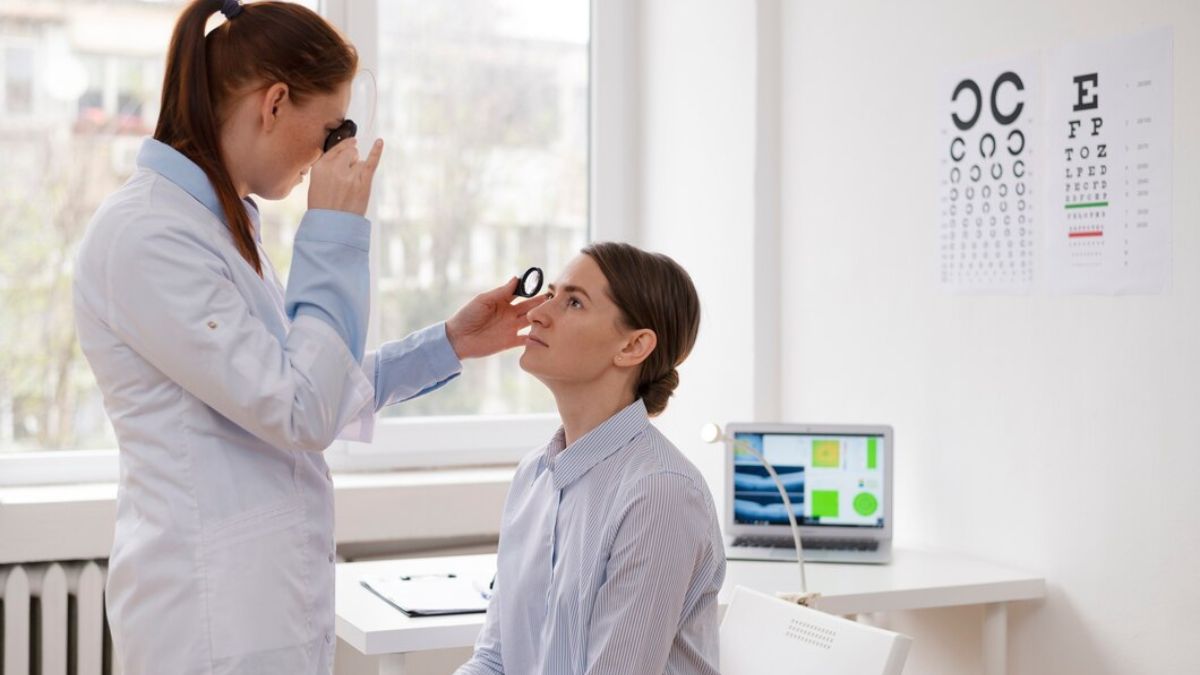HEALTH
Your Ultimate Guide to the Dignity Health Sports Park

Whether you’re a sports enthusiast or simply looking for a day of excitement, the Dignity Health Sports Park is the perfect destination. With world-class facilities, thrilling events, and a welcoming atmosphere, it’s no wonder this venue is a favorite among locals and visitors alike.
Located in Carson, California, the Dignity Health Sports Park is so much more than a sporting venue. Home to some of the most iconic matches and community events, it offers something for everyone to enjoy — from professional soccer games to concerts and family-friendly activities.
This guide covers everything you need to know about the Dignity Health Sports Park — its history, events, amenities, and tips for planning your visit. Stick around, and you’ll find plenty of reasons to add this incredible venue to your bucket list.
What is Dignity Health Sports Park?
The Dignity Health Sports Park is a multi-purpose sports and entertainment complex located on the campus of California State University, Dominguez Hills, in Carson, California. The venue spans 125 acres and features state-of-the-art facilities, including a 27,000-seat soccer stadium, an 8,000-seat tennis stadium, and fields for rugby, track and field, and training.
For fans of Major League Soccer (MLS), the Dignity Health Sports Park is best known as the home of the LA Galaxy—a team synonymous with passion, victory, and thrilling matches.
But its appeal goes beyond sports. The park also hosts concerts, community events, and international tournaments, making it a hub for entertainment across the Los Angeles area.
A Brief History
Opened in 2003 as the Home Depot Center, the facility became the Dignity Health Sports Park in 2019. It was designed to bring both professional-level sporting events and community engagement together in one dynamic space. Over the years, it has become a central point for memorable moments in both sports and entertainment.
Since it first opened, the venue has hosted memorable events like the MLS Cup Final, US Open Cup matches, and even high-energy boxing nights. It’s also been the training ground for Olympians, solidifying its reputation as a top-tier sports facility.
What Events Can You Attend?
One of the most exciting parts of the Dignity Health Sports Park is its variety of events. Whether you’re here for the thrill of live sports or the melody of live music, the stadium has something for everyone.
Soccer Matches
The main stadium at Dignity Health Sports Park serves as the home field for the LA Galaxy, one of the most successful franchises in MLS history. From regular-season matches to high-stakes playoffs, an LA Galaxy game is an experience filled with electric energy and a sea of blue, white, and gold.
International and Collegiate Sports
The venue frequently hosts international soccer matches, welcoming world-renowned teams and players to its field. It’s also the official training site for the U.S. Soccer Federation and a starting ground for young talent.
Track and field events, rugby games, and collegiate sports tournaments often take place here, making it a sports lover’s dream destination.
Concerts and Entertainment
Over the years, the venue has expanded its appeal to music lovers. Artists and bands from around the world have performed at Dignity Health Sports Park, creating unforgettable nights under the stars.
Community Events
The park is also a gathering place for the local community. Fitness runs, youth sports programs, and cultural events ensure year-round action beyond the professional stage.
Why Visit Dignity Health Sports Park?
Here are some reasons to add this venue to your must-visit list:
1. World-Class Facilities
The complex boasts modern and comfortable amenities, from its soccer stadium to its tennis courts. Whether you’re attending a match, concert, or exhibition, it has everything you need for a seamless experience.
2. Entertainment Variety
From athletic competitions to music experiences, the venue’s schedule is packed with a range of events to suit every interest.
3. Prime Location
Located a short drive from downtown Los Angeles, it’s easy to access, and its proximity to iconic California attractions means you can make an entire adventure out of your trip.
4. Family-Friendly Environment
Planning a family day out? Dignity Health Sports Park offers activities for attendees of all ages, making it a great spot for creating lasting memories with loved ones.
Tips for Visiting Dignity Health Sports Park
To make the most of your visit, keep these tips in mind:
Arrive Early
Parking can get busy, especially during major events. Arriving early not only ensures you snag a prime spot but also gives you time to explore.
Check the Event Schedule
Stay updated on upcoming events. The venue’s website (or social media channels) offers a handy calendar so you can plan ahead.
Dress Comfortably
From sunny afternoons to cool evenings, dressing for the weather is key. If you’re attending a soccer match, don’t forget to represent your team with gear and colors.
Enjoy the Food
The venue’s concessions feature snacks, meals, and drinks to keep you fueled during the event. Look for local favorites to add a special touch to your visit.
Take Public Transportation (If Possible)
If you’re looking to avoid parking hassles, consider using rideshares or public transportation to make your trip easier.
Explore Nearby Attractions
Use your trip as an opportunity to visit the nearby attractions, from sunny beaches like Manhattan Beach to the cultural spots in Los Angeles.
Be a Part of the Dignity Health Sports Park Community
One of the biggest draws of it is the sense of community it fosters. Whether you’ve been an LA Galaxy fan for years or are attending your very first live soccer game,, you’re welcomed with open arms at this vibrant venue.
Don’t forget to check out their official website for the latest updates and ticket information. Planning your visit promises excitement, entertainment, and a guaranteed good time.
Take a moment to discover what makes this park one of California’s must-see destinations. And who knows—your favorite sporting memory might just be made here.
HEALTH
Finding Strength in Community: The Vital Role of Support Groups in Addiction Recovery

The process of recovering from addiction is challenging and often requires a multimodal approach that considers both mental and physical health concerns. Among the various methods available to support this journey, support groups are one of the most helpful. These groups establish secure spaces where people exchange stories, give and receive support, and pick up applicable coping mechanisms. In a city like Seattle, attendees can find solace and guidance through gatherings such as AA Meetings Seattle, which serve as crucial networks for those seeking recovery.
The strength of support groups lies in their communal nature, providing a human connection that is both comforting and empowering. By uniting people who face similar struggles, these groups provide a feeling of empathy, support, and belonging. This community-based approach can significantly contribute to recovery, often becoming a pivotal element in maintaining long-term sobriety and mental well-being.
Introduction to Support Groups
In the realm of addiction recovery, support groups have cemented their status as indispensable resources. They serve as transformative spaces where individuals can openly express their struggles without fear of judgment, which can be crucial for those who have felt isolated or misunderstood. The power of peer support is grounded in empathy and shared experience, effectively creating a nonjudgmental atmosphere that encourages openness and honesty. This is not a new concept, but its importance has been increasingly recognized in recent years as part of a holistic approach to recovery.
The Science Behind Group Therapy
The success of group therapy is more than merely anecdotal. Scientific research substantiates its therapeutic value. Group settings harness the dynamics of shared human experiences, creating a unique environment conducive to healing. Studies suggest that individuals often achieve better outcomes when they feel part of a supportive community. The interpersonal interactions that characterize group therapy can lead to significant cognitive and emotional shifts, offering insights and healing that individual treatment might not provide.
Key Benefits of Joining a Support Group
Joining a support group extends beyond receiving emotional support to gaining practical life skills and coping mechanisms. Participants benefit from the collective wisdom of others who have navigated similar paths. This shared knowledge can be empowering, providing participants with diverse perspectives and strategies that have been successful for others. Additionally, the commitment to a group fosters accountability and a sense of responsibility toward maintaining one’s progress. Members often find motivation and a renewed resolve in seeing peers overcome similar hurdles.
Types of Support Groups for Addiction
Support groups can vary significantly in structure and purpose. The most traditional type is the 12-step program, such as Alcoholics Anonymous (AA), which has a long history of guiding individuals toward sobriety through structured steps and group accountability. Additionally, online support communities have become popular, offering asynchronous support transcending geographical boundaries. Faith-based groups also provide a spiritual dimension to recovery, integrating religious beliefs and values into the healing process. Each type of group offers distinct benefits and caters to different preferences and values, making it essential for individuals to choose based on their recovery journey.
HEALTH
The Benefits of Comprehensive Family Dental Care

Introduction to Family Dental Care
Family dental care considers the oral health needs of every household member, providing a comprehensive framework that ensures everyone—from toddlers just growing their first teeth to older adults needing specialized attention—receives consistent and high-quality dental treatment. This approach is immensely beneficial as it fosters a continuous care plan rather than fragmented approaches for different family members. It can significantly simplify logistics, as families can schedule consecutive appointments, reducing travel time and missed school or work hours. Moreover, healthcare professionals such as Dr. Dan Drakulich, DDS, exemplify a patient-focused approach, aiming to create lasting relationships that allow personalized and attentive care tailored to each individual’s needs.
Unlike single-focus dental practices, family dental care emphasizes adapting to the individual’s evolving dental requirements that change as they age. Whether it’s orthodontic referrals for teenagers or periodontal treatments for adults, this model of care guarantees that every phase of life receives its unique attention. This lifelong dental relationship strengthens trust and helps identify hereditary dental issues, providing an opportunity for earlier interventions and more effective treatments.
Preventive Care for All Ages
Preventive care plays a role in family dentistry, highlighting the significance of routine checks to maintain oral health and prevent disease. These practices, including bi-annucheckups and cleanings, shield against plaque accumulation, cavities, and gum disease. By catching issues early, dentists can propose less invasive solutions. Thus, families can minimize complex, costly interventions in the future. Additionally, advice tailored to dietary habits, brushing techniques, and proper use of dental floss can lead to healthier lifestyle choices that augment oral health.
For children, preventive care might also involve applying dental sealants to molars to prevent decay. For adults, preventive care focuses on maintaining gum health, a critical aspect of overall physical health. Studies suggest links between periodontal disease and systemic conditions, including heart disease and diabetes.
Standard Procedures in Family Dentistry
Family dentists are equipped to manage a variety of standard dental procedures. These range from cavity fillings, essential to halting decay, to root canals, which save teeth that otherwise might require extraction. The cosmetic aspect of family dentistry shouldn’t be overlooked, either. Teeth whitening and veneers aim to keep smiles healthy and enhance dental aesthetics, which can boost self-esteem.
It is invaluable for families to have all these services available in one location, often from a dentist they trust and have built a relationship with over the years or even decades. It alleviates stress and ensures a holistic view of each patient’s dental history, enabling accurate diagnoses and prognoses.
The Importance of Early Dental Visits for Children
Starting dental visits early can fundamentally influence a child’s outlook on oral health. These early encounters with the dentist can demystify the process and help children understand the importance of caring for their teeth. With childhood cavities being a prevalent concern, educating families about proper nutrition and oral cleaning practices becomes imperative. For comprehensive insights, check the importance of children’s dental visits.
Initial visits allow dentists to monitor the growth of the jaw and teeth, ensuring the detection and addressing of any possible problems, such as misalignment or crowding, before they escalate into more severe issues. Such proactive measures can be simple yet highly effective, such as recommending space maintainers or orthodontic evaluations when necessary.
Managing Dental Anxiety Across Generations
Dental anxiety is a common concern that family dentists often encounter and address. It can span generations, from children fearful of unfamiliar environments to adults apprehensive due to past negative experiences. Strategies such as mindfulness exercises, listening to music, and even virtual reality can play a role in calming nerves. In more extreme cases, sedation dentistry provides a safe option for those with profound anxiety or those requiring extensive procedures.
The American Dental Association suggests communication and gradual exposure as key strategies to lessen fear. This empathetic approach helps patients of all ages build a sense of control and comfort, encouraging regular dental visits instead of avoiding necessary care.
The Role of Technology in Modern Dentistry
Over recent years, the dental field has seen incredible technological advances, significantly enhancing the quality and precision of care. Digital X-rays, for instance, provide detailed images with less radiation exposure. At the same time, intraoral cameras allow the dentist and patient to view live images of the mouth on a screen. This transparency in diagnosis helps patients understand their condition better and participate in treatment decisions.
Other tools, like laser dentistry, can eliminate the need for sutures, reduce healing time, and increase comfort during procedures. Technological advances in dental materials have also led to more durable and aesthetically pleasing restorations, ensuring patients leave feeling better and looking great.
Choosing the Right Family Dentist
Selecting a family dentist is an important choice that affects your dental health journey and contentment. Key considerations should include the dentist’s experience, the ambiance of the dental office, ease of scheduling, and clear communication regarding treatments and costs.
Patients and their guardians benefit from selecting a dentist who prioritizes education and preventive care, contributing to better long-term outcomes. Reading patient reviews and testimonials helps gauge a practice’s reputation and service quality, helping you make an informed choice.
Conclusion: Lifelong Oral Health
The lifetime benefits of comprehensive family dental care cannot be overstated. It bridges convenience with thorough attention to health, involves every family member in promoting oral care, and provides anticipatory guidance that evolves with the patient. Through consistent and personalized care, family dentists improve individual smiles and contribute to the overall well-being of their communities, paving the way for generations of confident, healthy smiles.
HEALTH
The Importance of Eye Health and Routine Check-Ups

Introduction to Eye Health
Our eyes are immensely valuable yet often overlooked when discussing health. They allow us to experience the world in vibrant color and act as indicators of our overall well-being. Regular eye check-ups are vital because they help identify hidden health issues. For instance, conditions like hypertension or diabetes can often manifest in the eyes before they do elsewhere. This makes it crucial to integrate eye exams into your routine health care.
Why Regular Eye Check-Ups Matter
Eye check-ups offer much more than just vision correction updates. They are comprehensive evaluations that can detect diseases like glaucoma and macular degeneration, sometimes even before symptoms appear. Whether you live in a metropolitan area or a quiet suburb, scheduling regular visits to an optometrist Chicago can ensure that your eyesight remains sharp and that any potential diseases are identified and treated promptly, maintaining your quality of life. Early detection is pivotal in managing such diseases, which can otherwise lead to irreversible damage and vision loss. A comprehensive report from the American Academy of Ophthalmology indicates that routine eye examinations frequently uncover early indicators of systemic issues like high blood pressure and cholesterol.
These exams in Chicago help preserve eyesight and serve as preventive measures for broader health issues, emphasizing the interconnected nature of our body systems.
Common Eye Diseases and Their Prevention
Many eye diseases can profoundly affect your vision. Cataracts, for example, are a leading cause of blindness worldwide but are treatable with surgery. Diabetic retinopathy, often associated with diabetes, can severely impact vision but can be managed with proper medical care. Early intervention is crucial in minimizing damage and preserving sight. Preventative measures include maintaining good general health, protecting eyes from UV light, and staying informed about potential genetic risk factors. The National Institutes of Health provides comprehensive guidelines on preventive care, encouraging individuals to take proactive steps in preserving their eye health.
Daily Habits for Better Eye Health
Incorporating eye-friendly habits into your daily routine can significantly boost ocular health. Regular breaks from screens, optimizing lighting during work, and ensuring proper ergonomics can protect your eyes from unnecessary strain. Moreover, wearing sunglasses outside helps shield the eyes from harmful ultraviolet rays, potentially reducing the risk of cataracts and macular degeneration. Ensuring at least seven hours of restful sleep a night is also critical, as it allows your eyes to recover from the day’s exertions and reduces the risk of dark circles and puffiness. Making these small changes can yield significant long-term benefits for your eyes.
The Role of Nutrition in Vision
Nutrition significantly affects eye health. A diet high in antioxidants may assist in protecting the eyes from damage. Vitamins such as A, C, and E, along with minerals like zinc, are beneficial for maintaining good vision. Foods like carrots, sweet potatoes, and kale, rich in beta-carotene, can improve eyesight and prevent night blindness. Omega-3 fatty acids, often present in fish such as salmon, are advantageous for eye health, especially in lowering the chances of dry eyes and age-related macular degeneration. Incorporating these nutrients into your diet bolsters the defenses of your eye tissues, supporting prolonged visual health.
Impact of Screen Time on Eyes
As digital devices grow more essential to our lives, regulating screen time becomes crucial for eye health. Extended time spent in front of digital screens may cause digital eye strain, which presents symptoms like dry eyes, blurred vision, and headaches. The hardworking 20-20-20 rule offers relief by reminding individuals to look at an object 20 feet away for 20 seconds every 20 minutes. Extended time spent in front of digital screens may cause digital eye strain, which presents symptoms like dry eyes, blurred vision, and headaches. Implementing these strategies can enhance visual comfort throughout your workday.
Understanding Vision Changes with Age
It is natural for vision to change with age. Many people over 40 experience difficulty focusing on close objects, a condition known as presbyopia. These age-related changes are regular and often require adjustments such as reading glasses or bifocals. However, specific issues like cataracts, glaucoma, and age-related macular degeneration become more familiar with advancing age. Awareness of these issues and regular visits to an eye care professional can help manage these changes effectively. Intervening early can prevent significant vision impairment and help maintain an individual’s quality of life and independence.
Conclusion: Making Eye Health a Priority
Your eyes enable you to see and are also windows to your overall health. Prioritizing eye health through regular exams and daily mindful practices can prevent many common vision problems and detect underlying health conditions early. It is never too late to start benefiting your eye health through dietary changes, lifestyle adjustments, or periodic visits to the optometrist. By taking these proactive steps, you ensure that your vision remains sharp and clear, allowing you to enjoy all the beauty life offers for years to come.
-

 BLOG11 months ago
BLOG11 months agoWho Is the Father of CSK? A Deep-Dive Into Chennai Super Kings’ Dominance in Cricket
-

 EDUCATION11 months ago
EDUCATION11 months agoHighlights From the September 18 Board of Education Meeting
-

 PLATFORM10 months ago
PLATFORM10 months agoThe Ultimate Guide to MyDesi.Net – Where Culture Meets Connection
-

 EDUCATION11 months ago
EDUCATION11 months agoA Look Back at the Board of Education City of Linden 2020 and Manganello’s Impact
-

 HOME IMPROVEMENT10 months ago
HOME IMPROVEMENT10 months agoHome Depot Tool Rental, Everything You Need to Know
-

 BLOG10 months ago
BLOG10 months agoUnderstanding Missav: Everything You Need to Know
-

 TECHNOLOGY11 months ago
TECHNOLOGY11 months agoUnderstanding Mega-Personal.Net Technology and Its Applications
-

 TRAVEL11 months ago
TRAVEL11 months agoTravel Smarter with TravelsForNow, Your Guide to Exploring the World
